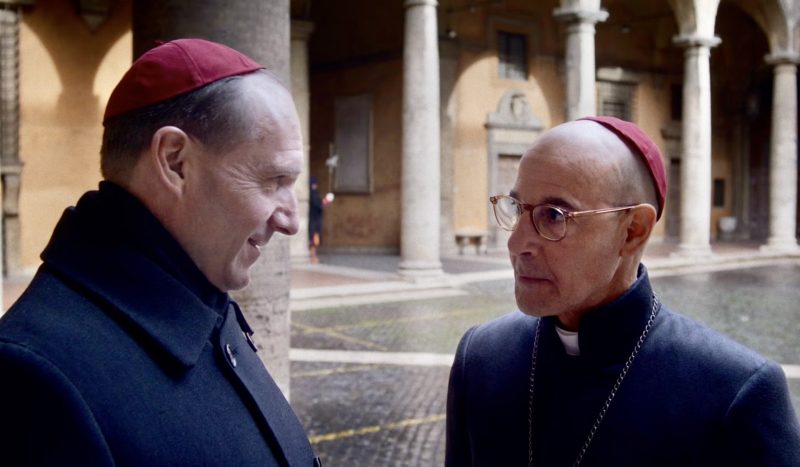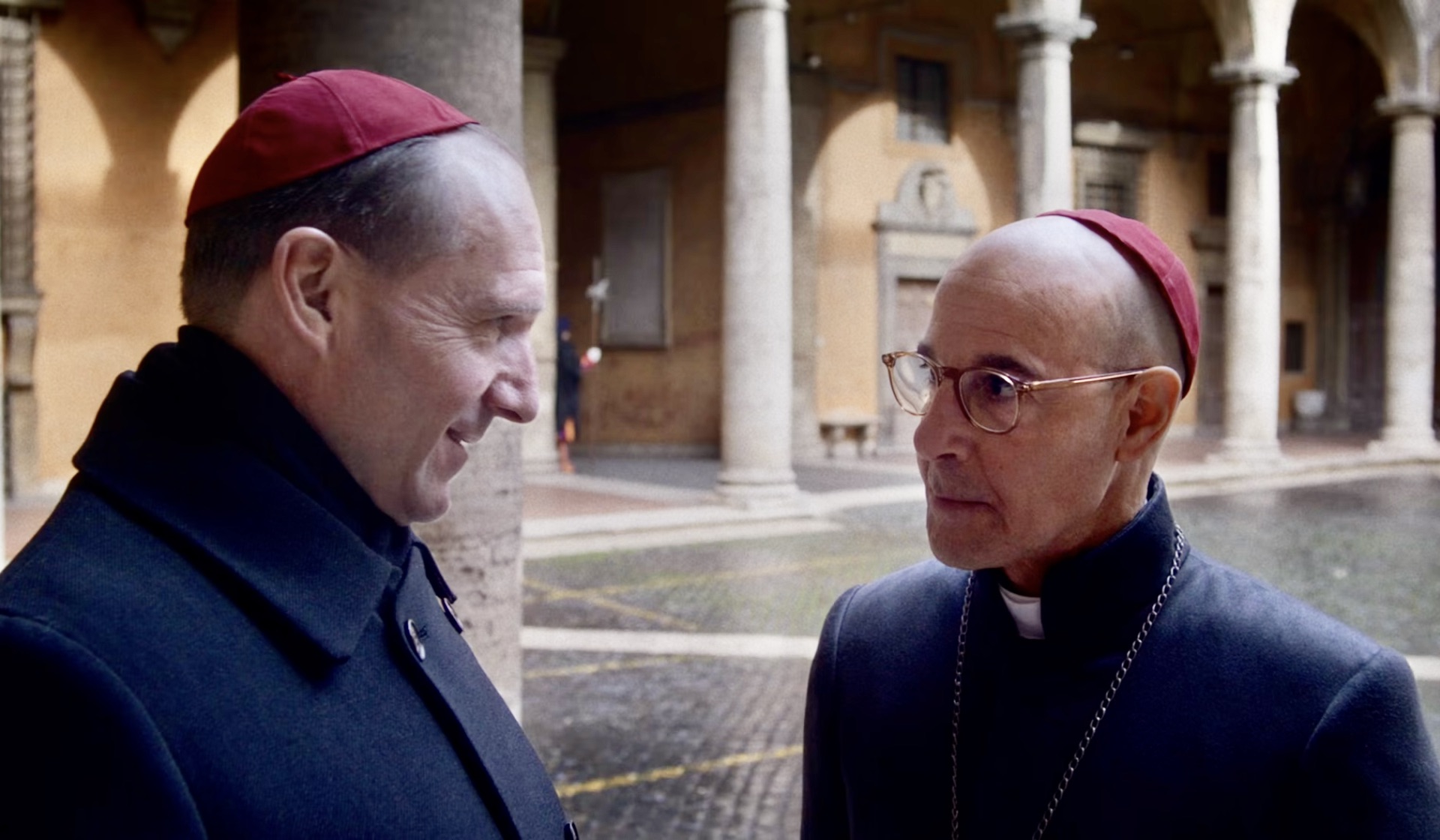
Intrigue, guile and surprises join the College of Cardinals as they come together to elect a new Pope in Conclave.
The sudden death of the Pope thrusts Cardinal Lawrence (Ralph Fiennes) into the daunting responsibility of overseeing centuries-old traditions, dating back at least 800 years. He understands that every step must be executed flawlessly; even the smallest misstep could open the door to doubt and chaos. While the rigid procedures are clearly defined by their repeated practice, it’s the human element that weighs most heavily on him. As the church’s leaders convene, Lawrence is expected to guide them unerringly through their inevitable political machinations.
Who among them will be chosen? Who deserves to be chosen? And who can be trusted to act in the church’s best interest? Even more unsettling: who among them—including Lawrence himself—hasn’t dreamt of the power and prestige that comes with being the Holy Father?
Let the games begin.
“Tradition.” It’s a word often used but rarely examined in depth. We think of it in terms of sports history, political legacies, or family gatherings around the holiday table. Yet none of these compare to the weight of tradition in the Catholic Church, where it is more than just a word—it’s a way of life. Tradition, for the Church, is a foundation of authority and identity, a link to a divine past. But it is also a double-edged sword. As much as it offers stability, it shackles those who are bound by it, leaving little room for personal ambition. And yet, ambition is never truly absent.
At the heart of this film lies the tension between tradition and human ambition. Director Edward Berger explores how these two forces collide within the walls of the Vatican, where each cardinal must weigh their personal desires against the collective good. Lawrence, the film’s central figure, is a man who knows that the price of power is immense, and yet the allure is undeniable. His struggle isn’t just about executing his role flawlessly; it’s about grappling with the temptation of what might lie beyond mere duty. Who can remain truly selfless in a system where the highest prize is one of ultimate authority?
Berger creates a visually sumptuous world, rich with ancient architecture, art, and ritual. His meticulous vision draws us into the story with the precision of a mouse led by the scent of an easy meal. The trap is set. His camera lingers on details that embody the weight of tradition—whether it’s the stroke of a brush on a centuries-old fresco or the flicker of candlelight during solemn rituals. Yet, it’s the subtle cues in the performances that reveal the undercurrent of ambition. The cardinals’ eyes flicker with desire, their voices sometimes betray urgency under the veneer of calm.
Fiennes delivers one of the year’s best performances as Lawrence, serving as the perfect conduit for the audience into this strange yet familiar world. Every nuance of his performance is delivered with precision and weight, making a Best Actor nod seem inevitable. Fiennes masterfully portrays a man torn between his role as a servant of tradition and the very human desires he must suppress. His expressions alone reveal the quiet torment of a man who understands that every decision could alter the future of the Church—and his place within it.
The supporting cast is equally impressive. Isabella Rossellini, playing a Vatican nun, conveys a wealth of emotion with remarkable subtlety. Her understated performance adds an unforgettable feminist layer to a male-dominated narrative. It’s a masterclass in less-is-more acting. In a world ruled by men, Rossellini’s character reminds us that even in the most rigid hierarchies, women’s voices, though often relegated to the background, can leave a lasting imprint. Her performance is a quiet rebellion, adding depth and complexity to a story about power and control.
This film is a brilliant example of slow-burn, understated storytelling that works. The tension builds from the very first scene and never relents. Wrapped in a thriller, it leaves a lasting impression—both as a reflection on the past and a pointed commentary on the present.
In a world where political leaders often clash with the established norms, where corporate ambition sometimes undermines ethics, the film serves as a reminder of the delicate balance between duty and desire. It asks us to question whether ambition, unchecked, can ever truly serve the greater good—or whether it inevitably leads to corruption.
Luke 5:26 reads, in part: “We have seen extraordinary things today.” After watching this film, I can say the same.



1 Comment
Excellent – I loved your synopsis !